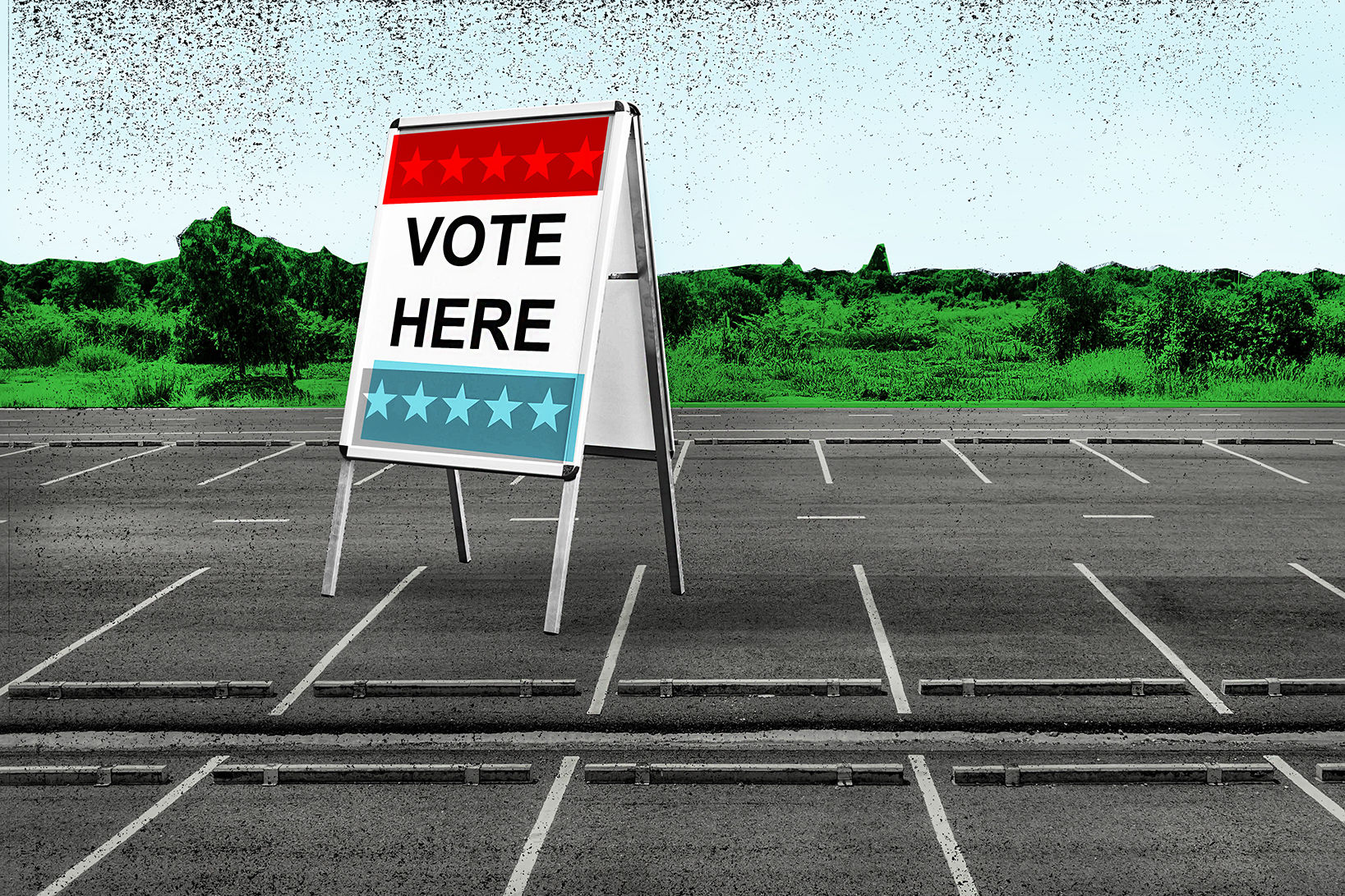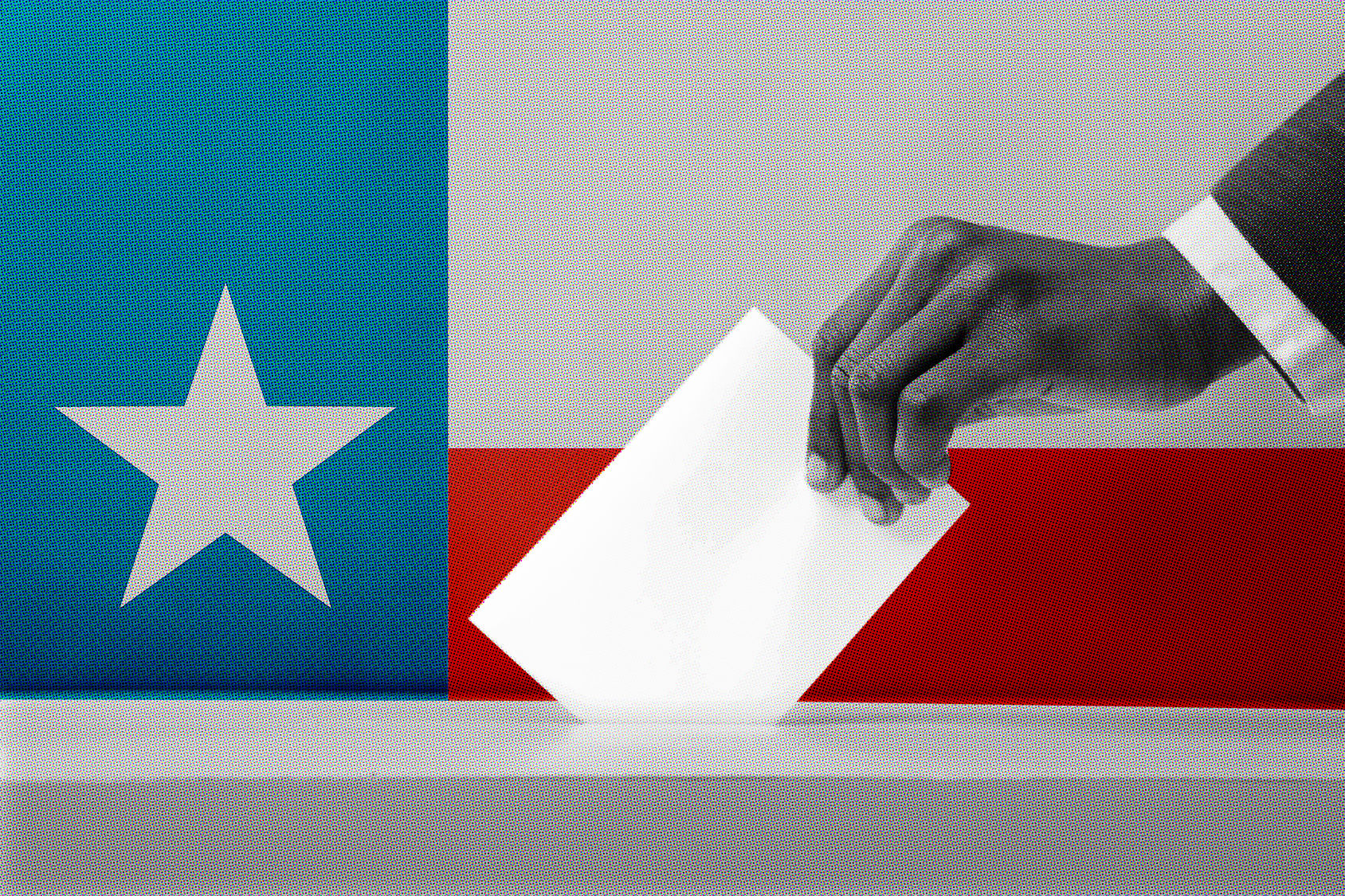Volunteer Numbers Soar in Houston for Kamala Harris

Image: Anthony Rathbun
Jennifer Boehme stood outside a house in Fifth Ward, the sun casting long shadows over the sidewalk as she prepared for her first-ever block walk one Saturday afternoon in September. At 62, she had spent a lifetime voting but hadn’t imagined herself knocking on doors for a political campaign. This year was different. Vice President Kamala Harris was at the top of the ticket, and something had shifted.
“This is the most scary the threat to our democracy has ever been. I’m scared to death at Project 2025 and the fact that it could become real,” Boehme said, referring to the conservative policy agenda the Heritage Foundation created for former President Donald Trump’s potential second term.
For her, it wasn’t just about Harris or the excitement of a historic presidential ticket—it was about protecting the future of her gay son and granddaughter. She had to be out there, talking to her neighbors, making sure they understood what was at risk.
And Boehme isn’t alone. Across the Houston area, there’s been a noticeable rise in political engagement since Vice President Kamala Harris became the Democratic nominee in July. The Harris County Democratic Party (HCDP), which had seen a steady but modest stream of volunteers when President Joe Biden was running for reelection, has experienced an explosion of support with Harris at the top of the ticket. HCDP chief of staff Derek Kelly describes the change as a “vibe shift.”
“People were scared and dreading November, and now they are pumped for it and want to put in the work,” Kelly says. “We saw our volunteer sign-ups skyrocket the week after Harris became the de facto nominee. We had somewhere in the range of 80-something volunteers in our database and we went to over 600, now we’re up to nearly 1,500.”
That surge in volunteers has transformed the way the local branch of the party is approaching the 2024 election, with a focus on grassroots organizing that had previously felt out of reach. At the heart of this strategy is block walking—a labor-intensive but effective method of voter outreach that had been used sparingly in past election cycles but is now central to HCDP’s efforts. The group has been specifically ramping up efforts in communities like Fifth Ward, where residents are already engaged but need that extra push to get to the polls.

Image: Anthony Rathbun
Door-to-door canvassing reaches voters in a way that feels more personal and urgent, and is now drawing first-timers like Boehme, who are stepping out of their comfort zone in the face of what they see as an existential threat to democracy.
“I’ve done phone banking before, but this feels different,” Boehme says. “You’re looking people in the eye. You’re talking to them face-to-face. That’s how you connect, that’s how you remind them what’s at stake.”
For years, Democratic politicians have sought to flip Texas, a notoriously conservative but changing state. Beto O’Rourke came close but ultimately lost his 2018 campaign against senator Ted Cruz, whose seat is being challenged again this November by Dallas’s Colin Allred.
Democratic-leaning Houston, the state’s most populous city, has become a key player in the battle to turn Texas blue. Harris made two visits to Houston in July, to speak with the American Federation of Teachers and pay her respects at former congresswoman Sheila Jackson Lee’s funeral. The vice president’s husband, Doug Emhoff, will be in Houston for fundraisers this month.
Alejandro Mier, a former fabricator turned full-time organizer who also attended the block walk, believes there's now a potential for change in Texas. He has spent five years canvassing for various causes such as DACA, but was not actively engaged in this election until recently. Since joining HCDP’s efforts, he has found the reception from the local community to be quite favorable.
“You’re speaking to your neighbors, and you realize that people are craving these conversations,” he explains. “They care about what’s happening locally, they just need someone to talk to them about it.”
Instead of relying solely on national messaging, HCDP is tailoring its outreach to meet people where they are, addressing issues that hit closer to home—whether it’s sidewalks and storm resilience or voter suppression and health care. In neighborhoods like Fifth Ward, these conversations are crucial.

Image: Anthony Rathbun
“What we’re finding is folks [are] not talking about immigration, LGBTQ rights, or any of the other big national issues,” Kelly says. “What that allows us to do is point out how our [local] politicians can address that and why your vote matters in that process.”
This alignment of local needs with the larger political landscape is what’s making the difference, according to state senator Molly Cook, who has been closely monitoring the election since Harris became the Democratic nominee.
“It feels like we are on fire. The day it was clear [Harris] was going to become top of [the] ticket, we had email requests asking when our door knocks would be, immediately,” Cook says, adding that she has been told of memberships at several local democratic clubs increasing.
Cook also notes the heightened energy at her speaking engagements, with attendees eagerly searching for opportunities to get involved. “When I get up at events and say, ‘Is anybody else looking forward to voting for Kamala Harris and Tim Walz?’ they go nuts,” she says with a laugh.
In addition to block walking, HCDP has organized a series of voter registration events, including a block party where residents can register to vote on the spot while enjoying music, eating food, playing games, getting free medical checkups, and engaging with their neighbors. HCDP is also collaborating with local influencers to reach a broader, younger audience, like Erika Harrison, Houston blogger and founder of Black Girls Who Brunch.
“She’s been putting out great content, and now we’re collaborating with her,” Kelly says. “She’s tagging us on stuff, promoting our events, teaching other folks on social media how she’s gained followers from doing political content and [why] they shouldn’t be scared of it. It helps educate folks on why voting matters.”

Image: Anthony Rathbun
Beyond voter engagement, election protection has become a key priority for HCDP. With growing concerns about voter suppression, the party is organizing one of its largest poll-watching efforts yet.
“I think we’re going to double it from 2020,” Kelly says. “These poll watchers are there not just to make sure there’s no wrongdoing by nefarious parties, but also protect the poll workers who are doing good work. What our poll watchers can do is be a witness and say ‘that never happened’ or ‘what [poll workers] were doing was right.’”
The party is also encouraging early voting and helping voters navigate complex mail-in ballot procedures. With volunteers like Jennifer Boehme and Alejandro Mier out on the front lines and new strategies in place, HCDP is more determined than ever to harness the revived energy and turn it into votes.




